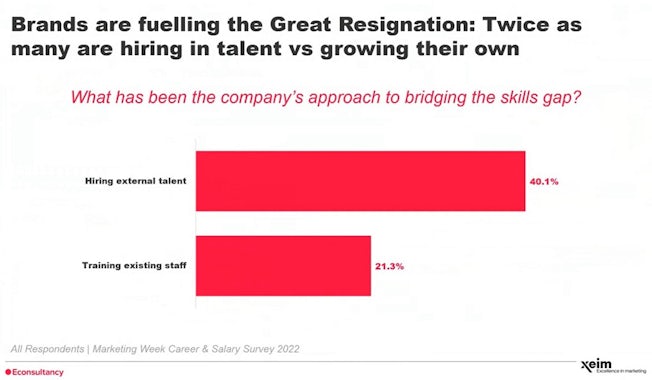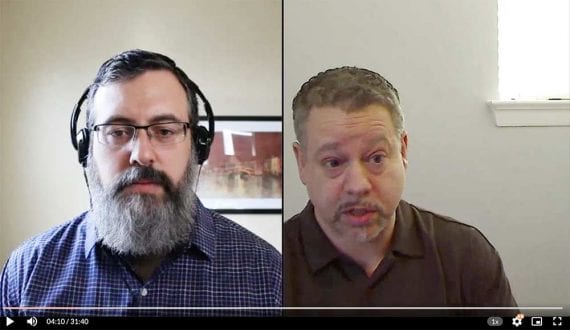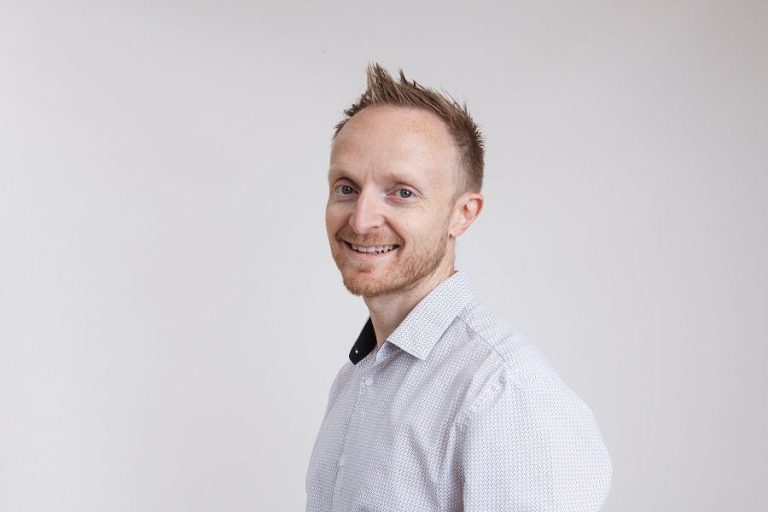As a discussion starter, Robinson asked each of the panellists to share what gives them optimism for the year ahead when it comes to people.
“And I’m always surprised at how many people, at the end of the interview, don’t state that they really want this job – and that they’re really impassioned to fight for that position. My suggestion to anybody is that, when you’re having an interview, make sure that you’re saying that you want the job, and that you’re not just going to be sitting there passively hoping that you’re chosen.”
Robinson put this question to a panel of expert leaders from major organisations: Gayla Wright, Senior HR Business Partner at Specsavers; Steven Javor, Director of Ecommerce – USA & Canada at Schneider Electric; and Ellie Norman, who spent four years as the Chief Marketing Officer at Formula One. Here is some of the advice they shared for how to create a learning culture within an organisation, including the importance of leadership involvement, setting aside time to learn, and ways to identify a ‘growth mindset’ in job candidates.

Specsavers’ Gayla Wright said that the brand has noticed people wanting to work for a purpose, and linking in to their passions, which then gives rise to new opportunities. “If we’re able to really harness that and think around – where can we get people working on different things, different projects, coming up with different ideas; that’s then going to aid the business. That’s really a win-win – because it makes sure that people have that variety in their roles, and that we get the very best out of our people.”
Javor replied that he looks at a candidate’s energy and their ability to tell a story and to talk about the challenges they’ve faced. “I believe that if they’ve made it through the initial stages of the interview, and ended up talking to me, they’ve already qualified themselves as being technically capable for the role; now I’m looking at fit.
“What made me excited, during my time in Formula One,” said Ellie Norman, “and, I think, a positive of Covid – was because businesses had to transition so quickly to being omnichannel and focused on the digital transformation and ecommerce, it actually raised the profile of customer experience, of the required martech, of the required resources inside the organisation, to a much higher level than I think had previously existed.
Causes for optimism
“When leadership visibly and verbally communicates ownership of learning, and the reason why it’s priority status, I think it’s something that can make a really tangible difference.”
“It’s very much a combination, because it is going to be some more tangible, skills-orientated development that some people will want to do, and that we need to do – but we should be learning every day in our roles: trying different things, and doing new things, and going out and finding out what’s happening in other organisations and bringing those ideas into your organisation.”
Javor also emphasised the importance of approaching learning from an overall development perspective, and thinking about the skills that you want to acquire and the goals for your personal development. “At Schneider … part of our plan is that every year, you need to go through your goals and objectives for your job, and there’s a section you have to dedicate to your development.
“It can be tough, because when you’re in the midst of the day job, and you’ve got the pressures and the deadlines, we can all be at risk of not putting our development at the forefront,” said Wright. Specsavers tackles this by creating an event to block off time in people’s diaries, “Power-Down Friday”. “It’s about … making sure you ringfence that two hours – listen to a podcast, read an article, do a virtual workshop on project management or soft skills development. We want it [at the] forefront of people’s diaries, so that when they are putting in their meetings, there’s that visual reminder, just to help embed that – make sure that you are taking time out.
The Marketing Week Career and Salary Survey 2022, which surveyed more than 4,400 UK marketing professionals to form a snapshot of marketers’ experiences, salaries, and career prospects, found that more than half of marketers were pondering a change of role, with 20.8% saying they were “definitely” looking for a change, while 36.1% were “considering” one.
Javor pointed to the need for management, and not simply lower-level staff, to become involved and invested in the concept. “It comes down to the governance, and of course supervisors have to approve employees’ ability to take on new training programmes,” he said. “We have a mandate within Schneider that every single employee has to have a certain amount of training that they take on every year. Some of it is mandatory training about our brand, and our position – and a lot of it is also a choice of hundreds of different programmes that you can engage in either remotely, virtually, or in person.
Overcoming barriers and making time for learning
“That development … comes under three different ways: one, by taking courses; two, by aligning with mentors – we have a mentorship programme, so if you want to get into something you’re not super familiar [with], you can sign up with a mentor and shadow them; and the third one is getting experience, and actually jumping into something, maybe in a minor role at first. It’s not just sitting back and listening to someone lecture to you, but it’s also getting some shadowing experience, and also some practical experience as well. I think those three work together to really foster that learning culture.”
Wright also argued for the importance of not just limiting “learning” to literal training programmes, but thinking about how learning can come from the work employees do every day and making that an integral part of the organisation’s mindset. “Organisations can create that culture in terms of how they approach their roles, and how they approach the work,” she said. “By giving that test and trial approach, by trying new things, that in-the-moment learning, as opposed to signing up for a workshop or a course, or whatever it might be – that all goes towards creating that culture.
What does creating a “culture of learning” with an organisation look like in practice, and what are the challenges that come with it? One audience member asked the panel what barriers organisations might encounter when moving to a “learn it all” culture, and how to overcome those.
“Another staple is – what are you doing around managing your own development? Really putting it back on them to [say] what are the things they’re looking at to keep those skills alive, or how are they going to engender that in their team. Having those sorts of answers prepared would really show me that someone has got a growth mindset.”
Robinson agreed with and echoed this sentiment based on his experiences with overseeing learning initiatives as part of Econsultancy. “We see time and again that if the most senior leader in a company is engaged and involved in learning, and they understand the value behind it – the priority then goes through the entire company,” he said.
But is this as simple as laying on the odd training day? How can organisations make upskilling and learning a part of their organisational culture, and in the process, offer as many opportunities to their employees as possible?
Robinson followed this up with a question about another barrier: making time for learning. Even in organisations that are committed to a culture of learning, it can be a challenge to balance everyday tasks with the time investment required for training and upskilling, and it’s easy to get caught up in the day-to-day work and not get around to setting time aside for learning, no matter how much you want to. What can be done to avoid that?
Even while aiming to retain and upskill existing talent as much as possible, there will always be a need to bring on new additions to the company, and ideally organisations will want to look for candidates who approach their role with a ‘growth mindset’: always looking for opportunities to learn and improve, and/or for their teams to learn and improve. An audience member asked the panellists how they identify this mindset in job applicants; what do they look for in the interview process?
Schneider Electric’s Steven Javor observed that, now that organisations are in a position to return to the office and reunite in person, there is a new energy among their staff. “[People] are more excited to learn about the possibilities that they are creating from the experience that they’ve had – and we’re really looking for those people that have that joie de vivre, that curiosity, that are always learning.”
Robinson recalled an example of this in practice that he’d seen “in the wild”: a CMO that he had emailed had set an Out of Office message to say that he was working on the Mini MBA programme from Marketing Week. “He was actually signposting it to his team that he was learning – so it was a double positive: he was learning himself, but his team was seeing, ‘It’s okay to learn’, and by diarising the time, no-one else could drive into his diary and try to take that slot. It’s a really terrific way that he went about it.”
“There’s something so simple in language and body language,” said Norman. “All of us have recruited people, and very, very early, you’ll intuit whether someone is in that mindset, but I think it will often come across in language and the way that they’re thinking and being able to holistically join dots – even if they don’t understand how your organisation works. Through the questions that they’re asking you, or how they’re responding, you get a real sense of their critical thinking, and where they’ve got gaps or opportunities.”
Schneider, said Javor, seeks out employees who are “T-shaped” – combining a deep specialist knowledge of an area such as sales, marketing, or distribution with a broad understanding of the wider ecosystem. “By having that overall view, we believe that they understand that customer experience – because we believe that the customer is loyal to the experience. They’re not loyal to brands as much anymore; they’re loyal to that experience.”
Econsultancy Digital Skills Index™
Finding job candidates with a growth mindset
Another finding from the survey indicates that companies may be fuelling the Great Resignation by predominantly hiring in new talent instead of investing in their existing talent: 40.1% of marketers said that their organisation’s approach to bridging the skills gap was to hire external talent, while only 21.3% said that their company was training existing staff.
At Econsultancy’s second quarterly briefing of 2022, Econsultancy Director Richard Robinson highlighted that a potential antidote to the ‘Great Resignation’ is creating an organisational culture of learning. According to a June 2021 study by Amazon and Gallup, 61% of US workers say the opportunity to participate in an upskilling program is an “extremely” or “very” important factor in their decision to remain in their current role, while 48% of respondents said they were “extremely” or “very” likely to switch roles if their new employer offered upskilling opportunities. In other words, training and learning can be a major factor in turning the Great Resignation into a Great Retention.
Talk of a “Great Resignation” has dominated conversations about recruitment, retention, and workplace culture since midway through 2021, as the ongoing Covid-19 pandemic prompts a widespread reassessment of priorities and working conditions.
Wright added some examples of questions she likes to pose in an interview to get candidates to reveal their approach to growth: one being asking candidates to talk about something that didn’t land as well as they’d hoped, and what they would do differently next time. “Inevitably, when you’re in an interview, you want to be putting your best side forward – but there’s always those things that we go, ‘With hindsight, knowing what I know now, I would approach that differently’,” she said. “And I like to hear those things when I’m speaking to people, because it gives me the reassurance that they have thought about this.
“There is a real striving for the company to increasingly encourage people to continue their own career path – even providing funding for you to take university courses. … We need to have our managers on board [with that] as much as we need to have employees on board.”
“And therefore, the conversation to get under the skin of required investment upfront; what type of skillset you need inside your organisation; where are the gaps, and how do you go on that journey together – was able to be had at a board level. … I think that’s one thing that definitely kept me excited: conversations being elevated to the highest level.”




